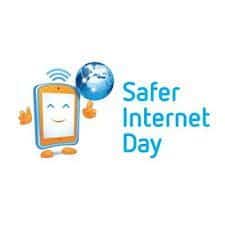Hello Mums! Today is Safer Internet Day 2020; with the theme- ‘Together for a better internet”. This is a global celebration usually in February each year; to promote the safe and positive use of digital technology for children and young people and to also; inspire a national conversation. This observance is coordinated in the UK by the UK Safer Internet Centre. Hundreds of organisations and individuals, get involved every year; to help promote the safe, responsible and positive use of digital technology for both children and young people.

The day offers the opportunity to highlight positive uses of technology and to explore the role we all play in helping to create a better and safer online community. It calls upon young people, parents, carers, teachers, social workers, law enforcement, companies, policymakers, and wider, to join together in helping to create a better internet. Why not get involved today and play your part!
As a parent or carer, you play a key role in helping your child to stay safe online. You don’t need to be an expert on the internet to help keep your child safe online. When asked, Kids where of the opinion that they will like their parents to sit them down and have a one on one conversation about their online safety and what they need to understand, to do this, parents will definitely need to first build a trust relationship with their kids.
How to use social media meaningfully and responsibly
For almost every one of us: Parents, children and young adults alike; social media has quickly become one of the main ways to connect with each other. What this entails is that we spend the bulk of our time on devices. The following guide gives you a better understanding and helps you and your kids discuss the positives and negatives of social media; so that you can decide how it fits into your lives together.
Understand the right age requirements:
Most platforms have age requirements (usually 13 years old), but in some cases, peers might have access to social media through their parents, older siblings or otherwise. According to The Social Age Study; approximately 59% of children have already used a social network by the time they are 10. Facebook has the most users under the age of 13. 52 per cent of 8 to 16-year-olds admit they ignore Facebook’s age restriction.
You don’t have to conduct a study to know that young kids under 13 are flocking to sites like Instagram, for example, to post and share photos, and to get likes from online friends. Instagram tries to make it difficult for young kids to sign up by providing a birthday picker that doesn’t let a new user select an age under 13. Regardless, kids easily make up fake birthdays and use their parents iTunes account to download Instagram to their own devices.
Therefore, if your young child simply must have a social life online, then there are plenty of safe alternatives designed specifically for younger users like Club Penguin, Webkinz, and Whyville. Each of these offers restricted and supervised networking.
Find a positive approach.
There are different ways to use social media. Help your children choose an approach that is positive for themselves and their relationships with others. Some people need to put more thought into what they post on social media. We’ve all probably seen those people that post constantly and seemingly without purpose. While not necessarily harmful, it can be quite annoying. Try to keep your audience in mind when constructing your next post. Is this something worth sharing? What message do you want to get across? By asking yourself these questions you can use social media more effectively as a communication tool.
[Tweet ““Active mentorship is crucial for children in the digital age. We want to teach children to do the right thing, not ‘catch’ them doing the wrong thing. ”Devorah Heitner, PhD”]
Get help with online security and safety:
By taking a proactive approach, parents, caregivers and educators can help children avoid some of the common dangers associated with Internet misuse. These security tips and online safety guides are an excellent resource for children of all ages:
Cybersecurity for Kids– Here is another really good list of tips and tricks for staying safe.
Child Safety Online – Parents and children can follow the guidelines, discussion points, and tips for keeping safe online.
Stop. Think. Connect. – OnGuard teaches kids about Internet safety and security, including ways to share and interact with others over the Internet without risk.
Keep it Tame Mobile Respect Game – Follow these steps to stay respectful online and stop things from getting nasty!
For information on teaching your children about safety (who and what to share online), security (like passwords) and cyberbullying, visit the Be Internet Legends website.

